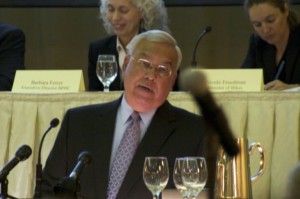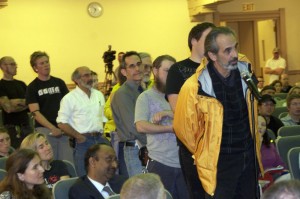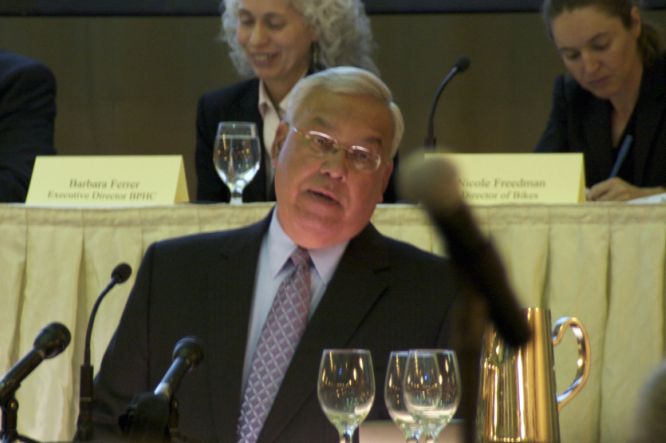
Boston has been on the bicycling bad list for years; however, Bicycling.com recently rated Boston 26 out of “America’s Top 50 Bike-Friendly Cities”.
Boston Bikes, a bicycling safety program that Mayor Thomas Menino launched two years ago, has carried out a number of initiatives to improve Boston’s bicycling environment such as installing 15 miles of bike lanes, setting up more than 500 bike racks, publishing a bike map, forming a bike advisory board and making parking in bike lanes illegal.
Beyond the local government’s efforts to improve Boston’s streets for cyclists, community groups have also taken initiatives in educating the public about bike safety. Education Director of MassBike Shane Jordan teamed up with BU Bikes for two days of workshops for beginner city cyclists on April 20 and 21.
After a cyclist was killed in a crash with a MBTA bus earlier this month, it became evident that the city government has much more to accomplish. At Boston’s first-ever Bicycling Safety Summit Wednesday evening at Morse Auditorium, the complaints list was long.

Menino kicked off the summit shortly after 5:30 p.m., declaring that “the car is no longer king in Boston” to over 200 people. Following Menino’s introduction, about 50 people voiced grievances to a panel of local and national government officials, including Jeffrey B. Mullan, Transportation Secretary; Richard A. Davey, the MBTA general manager; Edward Davis, Boston’s police commissioner; Thomas J. Tinlin, Boston’s transportation commissioner; Barbara Ferrer, executive director of the Boston Public Health Commission; and Nicole Freedman, director of Boston Bikes.
While members of the panel praised the strong fellowship of the bike community, they also asked for more cyclist responsibility, such as wearing a helmet and obeying traffic laws.

During the public forum, city residents offered several suggestions to the panel: to lessen the hostility of bus drivers, transportation conductors, police officers and motorists toward cyclists, calling for a city-wide cultural change; to accommodate cyclists in the Massachusetts Avenue construction project; to make permanent ghost bikes; to modify driver’s license exams and license transfers to increase bike safety awareness; to lower the speed limit to 20 miles per hour; to embark on a public information campaign for cyclists and drivers; to improve respect in the bike lanes among cyclists; to reform police training for bike accident reports; to provide public access to bike accident data; and to reconnect the Emerald Necklace bike path to Charles Gate and Franklin Park.
The forum extended almost 30 minutes overtime. The panel officials took notes and pledged their commitment to implement people’s proposals. However, until the next bike safety summit, which Freedman said will be held three months from now, it will be difficult to discern if the city leaders were just paying lip service.
“I thought it was a lot of rhetoric,” said John Shin (CAS ’12), the new treasurer of BU Bikes. “The officials were saying things that weren’t very concrete. They said that they allocated thousands of dollars for bike lanes, but I didn’t like that,” said Shin. “They allocate hundreds of millions dollars for highways and interstates. I didn’t think it was enough.”
“Pedestrians should take highest priority, and then cyclists and then cars,” Shin added. “The government’s slow to change, and the public is too,” he said. “There are some people who have the idea that cars are the primary mode of transportation. Slowly, it’s being replaced by bikes and other clean-energy vehicles.”
The criticisms launched from both sides called for more awareness, communication and responsibility from drivers, cyclists and the government. If you will be cruising through the streets of Boston this summer, wear a helmet and watch out for the next bike safety summit.


I attended and expected to hear some opposition after the Arlington meeting, but was surprised to find the audience nearly all cyclists. I was even more surprised to hear that they were really considering doing away with parking on one side of the street ( I think they said the south side).
A BIG thumbs up to the City of Boston and one to Anne Lusk from the Harvard School of Public Health for pushing hard for even more improvements than what they had planned!